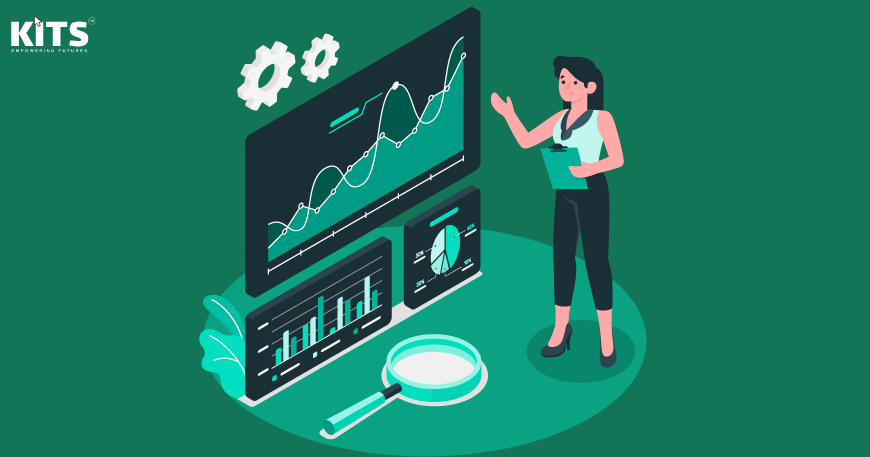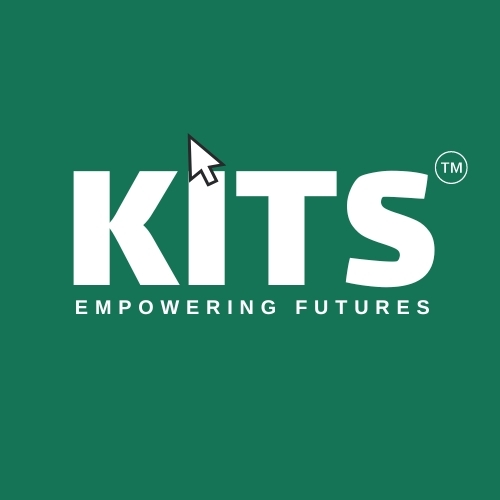Data is pretty much everywhere one can imagine and that is where an analyst opportunity of a lifetime is located. But tell me, how can one interact with this information and use it to solve everyday problems? This imbalance is corrected by data analytics, which is one of the valuable skill sets that are highly sought-after at the moment. It is alright if you lack experience in this rather interesting field; This article is your map and plan to understand the available data analytics course, especially for beginners. That is why you are here to find out more about the main tools and techniques that will be introduced to students, the most popular courses or subjects, and several tips that can be given if a person wishes to start the learning process of data analysis. At Kyaas Institute of Technical Skills, we offer a comprehensive Data Analytics Course for Beginners designed to provide you with the essential tools and techniques to thrive in this dynamic field.
What is Data Analytics?
Most firms gather a lot of data regularly and as it is often said, raw data on its own is not very meaningful. That is where data analytics comes in, a subset of business intelligence that aims at making sense of and making decisions from large volumes of data. Data analysis is the process of stimulating information that has potential commercial value from raw data. All of these are then used in the formulation of business decisions. A data analyst, on the other hand, may be described as a person who receives raw data and organizes and further analyzes it. This takes complex numbers and just makes them easy to understand and grasp for individuals. Based on the data, the data analyst presents the information in the form of what the company has to do or what has been done with it. Based on the considerations above, data analytics might be defined as one of the types of business intelligence that specializes in tackling specific problems and objectives in an organization. It is used to search for some sort of structure within all sorts of data that assists in describing a specific area of the business—for example, how a certain group of consumers reacts or how workers engage with a specific tool. Data analytics is useful because it lets one study the past and expect the same result for future events or behaviors. This implies that rather than assuming what kind of outcome there will be, you base your choices on what your analysis recommends.
Why Learn Data Analytics?
The Growing Demand for Data Analysts
Business intelligence has risen in importance as information technology has become a standard tool in modern organization. Every organization is using data in a bid to tap into new markets, improve or streamline their operations, and counter competition. According to a recent survey by the U. S. Bureau of Labor Statistics, job vacancies in data-related professions are expected to rise at a rate much higher compared to all other professions because of the growing application of data analysis.
Versatile Applications
The skills you acquire in our data analytics course in 2024 can be applied in numerous domains, including:
Marketing: Understanding customer behavior, optimizing campaigns, and enhancing ROI.
Finance: Risk assessment, fraud detection, and investment analysis.
Healthcare: Patient care improvement, operational efficiency, and predictive analytics.
Retail: Inventory management, sales forecasting, and customer segmentation.
Human Resources: Employee performance analysis, recruitment strategies, and workforce planning.
High Earning Potential
Since data analysts and scientists are considered knowledge workers, they receive some of the highest starting salaries in the tech sector. Data analytics skills can seriously increase your income-earning capacity as well as provide rewarding employment opportunities.
What Will You Learn in Our Data Analytics Course?
Our beginner-friendly course is accurately designed to provide a robust foundation in data analytics. Here’s a detailed overview of what you can expect:
Introduction to Data Analytics
Understanding Data Analytics: Learn the fundamental concepts and significance of data analytics.
Types of Data: Differentiate between structured and unstructured data.
Data Life Cycle: Explore the stages of data collection, processing, analysis, and interpretation.
Data Collection and Cleaning
Data Sources: Identify various data sources, including databases, APIs, and web scraping.
Data Quality: Understand the importance of data quality and techniques for data cleaning.
Handling Missing Data: Learn methods to handle missing data and ensure dataset completeness.
Exploratory Data Analysis (EDA)
Descriptive Statistics: Use measures of central tendency and dispersion to summarize data.
Data Visualization: Master tools like Matplotlib, Seaborn, and Tableau to create insightful visualizations.
Pattern Recognition: Identify patterns, trends, and anomalies in data.
Data Analysis Techniques
Hypothesis Testing: Conduct hypothesis tests to make data-driven decisions.
Regression Analysis: Explore linear and logistic regression models for predictive analytics.
Classification Techniques: Understand classification algorithms like Decision Trees, K-nearest neighbors, and Support Vector Machines.
Introduction to Big Data
Big Data Fundamentals: Learn about big data characteristics and challenges.
Hadoop Ecosystem: Get an overview of Hadoop, Spark, and other big data technologies.
Data Warehousing: Understand the principles of data warehousing and ETL processes.
Introduction to Machine Learning
Machine Learning Basics: Discover the core concepts of machine learning.
Supervised vs. Unsupervised Learning: Differentiate between supervised and unsupervised learning techniques.
Building Models: Learn the steps involved in building, evaluating, and deploying machine learning models.
Hands-On Projects
Real-World Datasets: Work on real-world datasets to apply your knowledge.
Capstone Project: Complete a capstone project that showcases your skills to potential employers.
Collaborative Learning: Participate in group projects and peer reviews to enhance your learning experience.
Why Choose KITS?
Experienced instructors
Our instructors are seasoned professionals, in the field of data analytics, bringing their knowledge and real-world experiences to the classroom to provide you with an excellent education.
Comprehensive Course Content
The curriculum is perfectly made to encompass all aspects of data analytics spanning from principles to advanced methodologies. This will equip you with a rounded understanding of the subject preparing you for roles within the industry.
Flexible Learning Opportunities
We offer a range of learning options, including traditional in-person classes tailored to suit your schedule. Our online platform features modules, live sessions, and recorded lectures granting you the freedom to learn at your pace.
Support for Career Development
At Kyaas Institute we are dedicated to helping you succeed. Our career support services include assistance with resume building, interview preparation, and guidance on securing job placements. We collaborate closely with our network of industry partners to facilitate connections with employers.
Engage in Community and Networking
Become part of our community of learners and professionals. Take part in forums join webinars and attend networking events that allow you to establish connections, within the data analytics field.
Conclusion
Data analysis is a tool that offers a gateway to a range of career paths and delivers important insights into different facets of business and technology. The introductory Data Analytics Program, at Kyaas Institute of Technical Skills aims to provide you with the expertise and understanding to thrive in this domain. Backed by educators, a syllabus, and strong career guidance, our focus is on supporting you in reaching your aspirations. Enroll now. Begin your exploration of data analytics, to becoming a data analyst.



